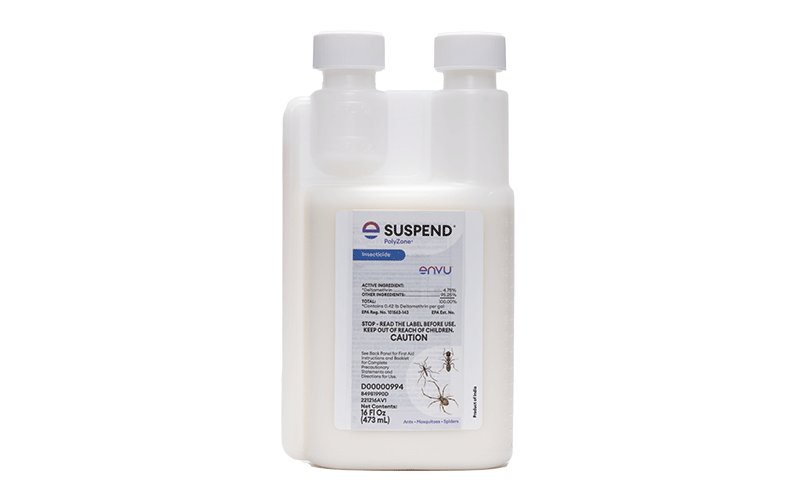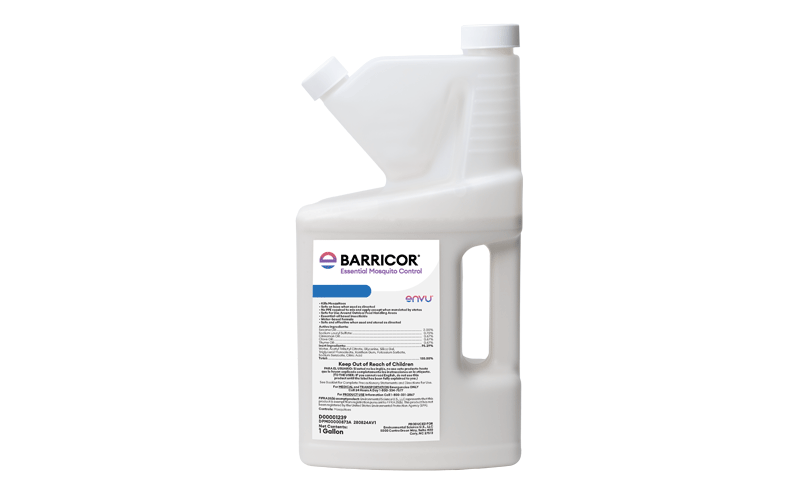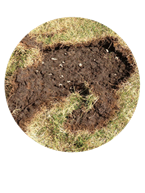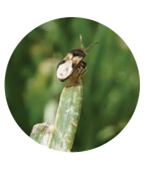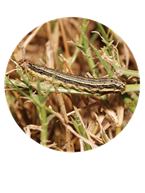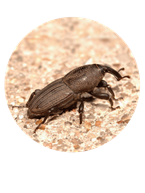Mosquito
Boost your revenue by turning mosquito control into a profitable add-on service. Discover how to identify problem areas, offer proactive treatments and effectively upsell to keep your customers' outdoor spaces mosquito-free.
An Opportunity for Lawn Care Businesses
Mosquito control isn’t just about protecting your customers from annoying pests and potential diseases like West Nile and Zika — it’s about adding a valuable, profitable service to your offerings. By integrating mosquito treatments into your existing lawn care services, you can easily increase your revenue. You’re already walking the customer’s yard, so why not identify mosquito problem areas and offer a solution that benefits both your business and your clients?
Understanding the mosquito problem
Mosquitoes are not only annoying — they can also harm your customers’ enjoyment of their outdoor spaces. Controlling mosquitoes is a challenge because of their tiny size and adaptability, but it’s also a service many homeowners are willing to pay for.
All species of mosquitoes share some common traits, such as a four-stage life cycle (egg, larva, pupa, adult) that depends on specific habitats, which vary by species. They breed all summer and into the fall, and some species can go from egg to adult in as little as eight days. By understanding these breeding patterns, you can proactively offer treatments before mosquitoes become a problem, making it easier to upsell this service to your clients.
Here are key facts about the three species that are most common in the continental U.S.:
- Aedes mosquitoes only need small pools of water to lay eggs and can remain dormant for months until rain occurs. After rainfall, dormant eggs hatch into larvae, potentially leading to a surge of up to 40,000 mosquitoes within just six weeks. Normally, they do not travel more than a few hundred yards, which can lead to dense swarms. Their distribution includes the lower half of the continental U.S., much of the Midwest and the Northeast.
- Culex mosquitoes primarily feed on birds, so they’re found higher up than other species. They tend to bite at dusk, dawn and the middle of the night, and they will fly up to two miles in search of prey. This species is found nationwide.
- Anopheles mosquitoes lay their eggs in marshy areas or near the banks of shallow creeks and streams. They rest in dark, shaded areas and tend to swarm and bite after dusk or at night. This species can be resistant to Type 1 pyrethroids. They are found in the eastern half of the U.S. and parts of Texas, Oklahoma, Kansas, Nebraska and the Dakotas.
What to look out for
When you’re already on a customer’s property, keep an eye out for common mosquito breeding spots. If you can identify these problem areas during your regular visits, it becomes much easier to offer mosquito treatments as a needed add-on service.
All species of mosquitoes need water to reproduce, so uncovering sources of standing water is a key part of delivering effective control. This is where you can add value for your clients. You’re not just solving an issue — you’re also providing peace of mind, which can make them more likely to invest in your services.
Inspect the front yard and backyard for standing water:
- Children’s toys, including sandbox toys
- Overwatered plant containers
- Watering cans, buckets and birdbaths
- Low or marshy places in the lawn or planted beds
- Gutter drainage points
- Leaky faucets, hoses or irrigation spouts
- Open garbage bins and lids
The solution
Suspend® PolyZone® insecticide is a good choice for lawn care businesses looking to offer mosquito control. It keeps working for up to 90 days thanks to a polymer barrier that protects the active ingredient in tough weather conditions and on challenging surfaces. These benefits work to reduce time-consuming callbacks and keep your lawn care business on track.
To achieve optimal control, it’s crucial to thoroughly treat all areas where mosquitoes may land. Mosquitoes have six tiny contact points and often rest in obscure areas. If they land on an untreated surface, they won’t be controlled, so focus on covering all potential landing spots including landing spots.
Deltamethrin, the active ingredient in Suspend PolyZone, is effective against mosquito species resistant to Type 1 pyrethroids. This makes it more effective against a broad range of mosquito species. It kills mosquitoes at the adult stage, effectively stopping the egg-laying process and ending the breeding cycle. This eliminates the need for an insect growth regulator (IGR), helping to protect non-target insects.
The polymer barrier that protects the active ingredient in Suspend PolyZone won’t wash away; however, you need to be sure to treat foliage thoroughly. Pay special attention to the undersides of leaves and dark, shaded areas to ensure contact no matter where mosquitoes land.
Suspend PolyZone also controls many other bothersome and dangerous crawling and flying insects including ants, bed bugs, carpenter ants, carpet beetles, centipedes, cockroaches, fleas, hornets, millipedes, multicolored Asian lady beetles, scorpions, silverfish, spiders, ticks, wasps and yellow jackets.
Additional resources
Get our expert mosquito control solutions white paper
/// Download the sell sheet

